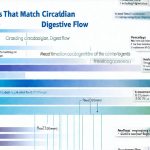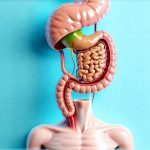Many people report experiencing more pronounced food reaction symptoms – whether it’s bloating, heartburn, skin flare-ups, or general discomfort – when these reactions occur later in the day, particularly in the evening. This observation isn’t necessarily about what you eat, but when and how your body processes food at different times. It touches upon a complex interplay of circadian rhythms, digestive function, stress levels, and even sleep quality. While anecdotal evidence abounds, understanding the potential mechanisms behind this phenomenon can empower individuals to better manage their symptoms and navigate dietary sensitivities. This article aims to explore the various factors that might contribute to why food reactions seem more intense in the evening, offering a nuanced perspective on this common experience.
The perception of worsened evening reactions isn’t always about a sudden increase in sensitivity; it could also be related to how we perceive symptoms differently at night. Daytime distractions and activities often mask mild discomforts that become much more noticeable when we are trying to relax or sleep. Furthermore, the body naturally shifts into repair and restoration mode overnight, amplifying sensations – both pleasant and unpleasant. This means a slight digestive upset might feel far more disruptive in the evening than during the day. It’s important to differentiate between an actual worsening of symptoms versus heightened awareness of them as we transition towards rest. Understanding the link between food reactions and skin rashes can help pinpoint the source of discomfort.
The Circadian Rhythm & Digestion
Our bodies operate on internal clocks, known as circadian rhythms, which regulate numerous physiological processes – including digestion. These rhythms influence everything from stomach acid production and gut motility to enzyme secretion and nutrient absorption. Throughout the day, digestive function generally peaks during waking hours to support energy intake and utilization. As evening approaches, there’s a natural slowing down of these processes in preparation for sleep. This doesn’t mean digestion stops altogether, but it operates at a lower capacity. – Reduced gastric emptying means food stays in your stomach longer. – Intestinal motility decreases, potentially leading to bloating or discomfort. – Enzyme production may also decrease, impacting the breakdown of certain foods. These changes can make the body less efficient at processing food and more prone to experiencing reactions if sensitivities exist. The role of gut health is paramount in how we digest.
The timing of meals relative to these rhythms is crucial. Eating a large meal close to bedtime, especially one containing difficult-to-digest foods, can exacerbate these effects. The digestive system remains active while we’re trying to sleep, potentially disrupting sleep quality and intensifying any existing symptoms. This disruption creates a vicious cycle: poor sleep increases stress levels, which further impacts digestion, making food reactions even more pronounced the following evening. It’s worth noting that individual circadian rhythms vary; some individuals are naturally “morning people” with peak digestive function earlier in the day, while others are “night owls” who may experience better digestion later on.
Consider a scenario: Someone with lactose intolerance might tolerate a small amount of dairy during lunchtime without issue because their digestive system is at its peak efficiency. However, consuming the same amount as a late-night snack could lead to significant bloating and discomfort due to reduced lactase enzyme production and slower gastric emptying. This illustrates how the same food can elicit vastly different reactions depending on the time of day.
The Role of Cortisol & Stress
Cortisol, often dubbed the “stress hormone,” plays a vital role in digestion. It’s typically higher in the morning, helping to mobilize energy and prepare the body for activity. As the day progresses and stress levels fluctuate, cortisol levels naturally decline. This decrease can significantly impact digestive function, especially when combined with evening meals. – Chronic stress further depletes cortisol reserves, impairing digestive capacity. – Elevated stress hinders proper enzyme production and gut motility. – Stress diverts blood flow away from the digestive system, prioritizing “fight or flight” responses.
When we’re stressed, our bodies prioritize survival over digestion. This means food isn’t broken down efficiently, increasing the likelihood of undigested particles triggering immune responses in sensitive individuals. The evening is often a time when stress accumulates throughout the day – from work pressures to personal commitments – creating an environment where digestive issues are more likely to surface. Furthermore, many people attempt to “wind down” with unhealthy comfort foods in the evening, which can further exacerbate these problems. Understanding food and mood is key for managing stress related eating habits.
It’s important to implement strategies for managing stress throughout the day, such as mindfulness exercises, regular physical activity, or spending time in nature. These practices help regulate cortisol levels and support optimal digestive function. Even a short period of relaxation before dinner can make a difference. Additionally, identifying personal stressors and developing coping mechanisms are crucial steps towards minimizing their impact on digestion. Is the food or additive to blame?
Sleep Quality & Gut Health Connection
The gut microbiome – the community of microorganisms living in our digestive tract – is profoundly influenced by sleep quality. When we don’t get enough restful sleep: – The diversity and balance of the gut microbiome can be disrupted. – Inflammation increases, potentially exacerbating food sensitivities. – Intestinal permeability (“leaky gut”) may worsen, allowing more undigested particles to enter the bloodstream. A compromised gut microbiome is less resilient and less able to tolerate certain foods, making reactions more likely. The gut microbiome’s role in food sensitivity is vital for overall health.
Sleep deprivation also impacts digestive function directly. It reduces gastric emptying, slows intestinal motility, and alters hormone levels related to appetite regulation. This creates a cascade of events that can lead to bloating, constipation, or diarrhea – all symptoms commonly associated with food reactions. The relationship between sleep and gut health is bidirectional: poor gut health can disrupt sleep quality, and conversely, poor sleep can worsen gut health.
Prioritizing sleep hygiene is essential for managing food sensitivities. This includes establishing a regular sleep schedule, creating a relaxing bedtime routine, avoiding caffeine and alcohol before bed, and ensuring a dark, quiet, and cool sleep environment. Addressing underlying sleep disorders, such as insomnia or sleep apnea, may also be necessary to restore gut health and reduce the severity of food reactions.
Identifying Triggers & Timing Strategies
The key to managing evening food reactions often lies in identifying individual triggers and implementing strategic timing adjustments. This requires a period of careful observation and experimentation. Consider these steps: 1. Food Diary: Maintain a detailed food diary, recording everything you eat and drink, along with any symptoms experienced and the time they occur. Pay close attention to the timing of reactions relative to meals. 2. Elimination Diet: Under the guidance of a healthcare professional, consider an elimination diet to identify potential trigger foods. This involves removing suspected allergens or intolerances from your diet for a period of time and then gradually reintroducing them one at a time to observe any reactions. 3. Meal Timing Adjustments: Experiment with meal timing. Try eating larger meals earlier in the day when digestive function is optimal, and opting for lighter snacks in the evening. Avoid eating within 2-3 hours of bedtime.
Focus on easily digestible foods in the evening. This might include steamed vegetables, lean protein, or broth-based soups. Minimize processed foods, sugary drinks, and high-fat meals, which can put a strain on the digestive system. Hydration is also crucial; drinking water throughout the day supports optimal digestion and helps prevent constipation. It’s important to remember that there’s no one-size-fits-all approach. What works for one person may not work for another. The goal is to find strategies that minimize symptoms and improve overall well-being. Remember hydration’s role in reducing reactions. What do your nails reveal about food sensitivities?


















